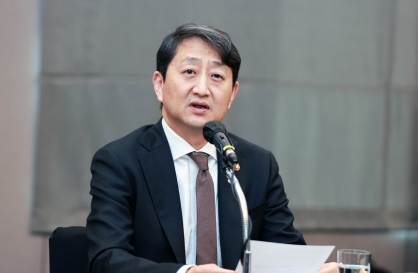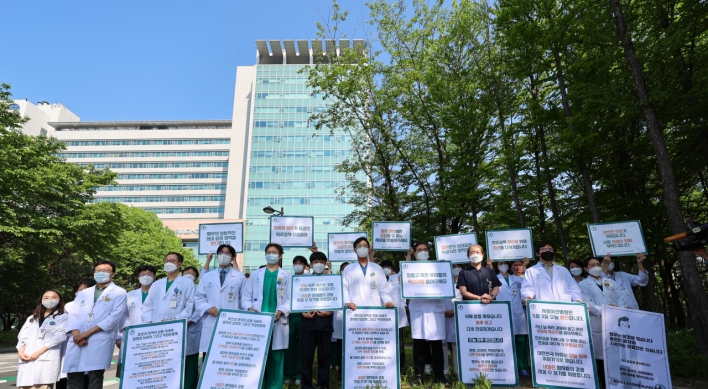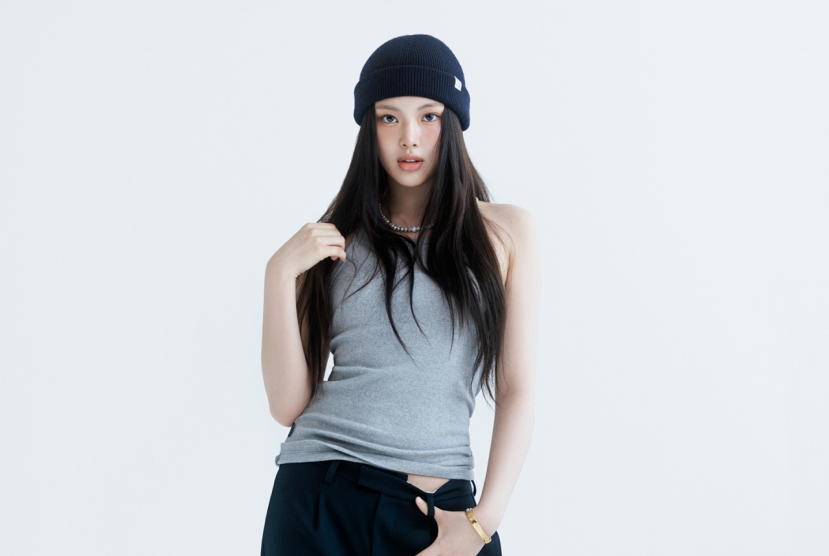North Korean leader Kim Jong-un was elected as the chairman of the ruling Workers' Party of Korea (WPK) at its rare party congress, the North's state media said, a move aimed at bolstering the leader's monolithic power.
Wrapping up the four-day long congress of the WPK, North Korea announced Monday that its leader was bestowed with a new title of the WPK's chairmanship, according to the country's state-run television broadcaster.
Kim has been at the top post of the ruling party, but his previous title was the first secretary of the WPK. He also serves as the first chairman of the National Defense Commission and the supreme commander of the Korean People's Army.
The leader's earning of the WPK's chairmanship was the culmination of the ruling party's first congress in 36 years which kicked off on Friday in Pyongyang, analysts said.
The move came as the North's leader was slated to rise to "the top post" of the WPK at the congress, a high-profile political event aimed at reaffirming the leader's unfettered power.
The seventh party congress served as a venue to reaffirm Kim's dual pursuit of nuclear and economic development and to highlight the role of the WPK as the paramount political body in the North, experts said.
The party gathering came amid high speculation that Pyongyang could carry out its fifth nuclear test at any time. North Korea conducted a nuke test in January and launched a long-range rocket the following month, prompting the U.N. to impose its strongest ever sanctions on North Korea.
Analysts said the election of Kim to the chairmanship of the WPK indicates the leader's intent to strengthen the role of the WPK as the country's founder and his grandfather Kim Il-sung cherished the party.
"The title of the WPK's chairmanship has earned him the legitimacy as the country's supreme leader," said Yang Moo-jin, a professor at the University of North Korean Studies. "The North's leader seems to need a new title to formally launch his era."
The North's leader, presumed to be in his early 30s, assumed power in late 2011 following the sudden death of his father Kim Jong-il.
His late father advocated a military first, or "songun," policy, highlighting the role of the military, but the young leader has shifted his focus to the WPK while simultaneously pursuing nuclear and economic development.
At the party congress, North Korean leader Kim Jong-un has made it clear that he will "permanently" defend the pursuit of his signature policy of developing nuclear weapons in tandem with boosting the country's moribund economy, commonly known as the "byeongjin" policy.
He also called his country a "responsible nuclear weapons state," adding that Pyongyang will not use its nuclear arms first unless its sovereignty is threatened by other countries with nuclear bombs.
Meanwhile, Japan-based broadcaster NHK said that the congress has elected two more members to the standing committee of the party's politburo -- premier of the Cabinet Pak Pong-ju and Choe Ryong-hae, a party secretary.
The move has raised the number of the standing members to five including the North's leader Kim Jong-un, ceremonial leader Kim Yong-nam and Hwang Pyong-so, director of the general political bureau of North Korea's armed forces.
At a plenary meeting, the WPK's central committee elected 19 members and nine alternate members of the party's political bureau, it said.
North Korean Foreign Minister Ri Su-yong was named as one of the 19 Politburo members, but Kim Yo-jong, the younger sister of the North's leader, was not mentioned on the list.
She is known to serve as a vice director of the party's propaganda and agitation department.
The WPK's central committee also decided to set up a new bureau of political affairs, it said.
The North, meanwhile, honored Kim's late father Kim Jong-il as the eternal head of the WPK in its revised party rules, the country's state media said.
North Korea held the party congress behind closed doors and restricted media coverage by foreign journalists.
But just before the gathering came to an end, a small group of foreign reporters were permitted to cover the event, according to foreign media reports. (Yonhap)
Wrapping up the four-day long congress of the WPK, North Korea announced Monday that its leader was bestowed with a new title of the WPK's chairmanship, according to the country's state-run television broadcaster.
Kim has been at the top post of the ruling party, but his previous title was the first secretary of the WPK. He also serves as the first chairman of the National Defense Commission and the supreme commander of the Korean People's Army.
The leader's earning of the WPK's chairmanship was the culmination of the ruling party's first congress in 36 years which kicked off on Friday in Pyongyang, analysts said.
The move came as the North's leader was slated to rise to "the top post" of the WPK at the congress, a high-profile political event aimed at reaffirming the leader's unfettered power.
The seventh party congress served as a venue to reaffirm Kim's dual pursuit of nuclear and economic development and to highlight the role of the WPK as the paramount political body in the North, experts said.
The party gathering came amid high speculation that Pyongyang could carry out its fifth nuclear test at any time. North Korea conducted a nuke test in January and launched a long-range rocket the following month, prompting the U.N. to impose its strongest ever sanctions on North Korea.
Analysts said the election of Kim to the chairmanship of the WPK indicates the leader's intent to strengthen the role of the WPK as the country's founder and his grandfather Kim Il-sung cherished the party.
"The title of the WPK's chairmanship has earned him the legitimacy as the country's supreme leader," said Yang Moo-jin, a professor at the University of North Korean Studies. "The North's leader seems to need a new title to formally launch his era."
The North's leader, presumed to be in his early 30s, assumed power in late 2011 following the sudden death of his father Kim Jong-il.
His late father advocated a military first, or "songun," policy, highlighting the role of the military, but the young leader has shifted his focus to the WPK while simultaneously pursuing nuclear and economic development.
At the party congress, North Korean leader Kim Jong-un has made it clear that he will "permanently" defend the pursuit of his signature policy of developing nuclear weapons in tandem with boosting the country's moribund economy, commonly known as the "byeongjin" policy.
He also called his country a "responsible nuclear weapons state," adding that Pyongyang will not use its nuclear arms first unless its sovereignty is threatened by other countries with nuclear bombs.
Meanwhile, Japan-based broadcaster NHK said that the congress has elected two more members to the standing committee of the party's politburo -- premier of the Cabinet Pak Pong-ju and Choe Ryong-hae, a party secretary.
The move has raised the number of the standing members to five including the North's leader Kim Jong-un, ceremonial leader Kim Yong-nam and Hwang Pyong-so, director of the general political bureau of North Korea's armed forces.
At a plenary meeting, the WPK's central committee elected 19 members and nine alternate members of the party's political bureau, it said.
North Korean Foreign Minister Ri Su-yong was named as one of the 19 Politburo members, but Kim Yo-jong, the younger sister of the North's leader, was not mentioned on the list.
She is known to serve as a vice director of the party's propaganda and agitation department.
The WPK's central committee also decided to set up a new bureau of political affairs, it said.
The North, meanwhile, honored Kim's late father Kim Jong-il as the eternal head of the WPK in its revised party rules, the country's state media said.
North Korea held the party congress behind closed doors and restricted media coverage by foreign journalists.
But just before the gathering came to an end, a small group of foreign reporters were permitted to cover the event, according to foreign media reports. (Yonhap)








![[K-pop’s dilemma] Time, profit pressures work against originality](http://res.heraldm.com/phpwas/restmb_idxmake.php?idx=644&simg=/content/image/2024/05/08/20240508050705_0.jpg&u=20240508171126)
![[K-pop’s dilemma] Can K-pop break free from ‘fandom’ model?](http://res.heraldm.com/phpwas/restmb_idxmake.php?idx=644&simg=/content/image/2024/05/09/20240509050541_0.jpg&u=20240509173751)








